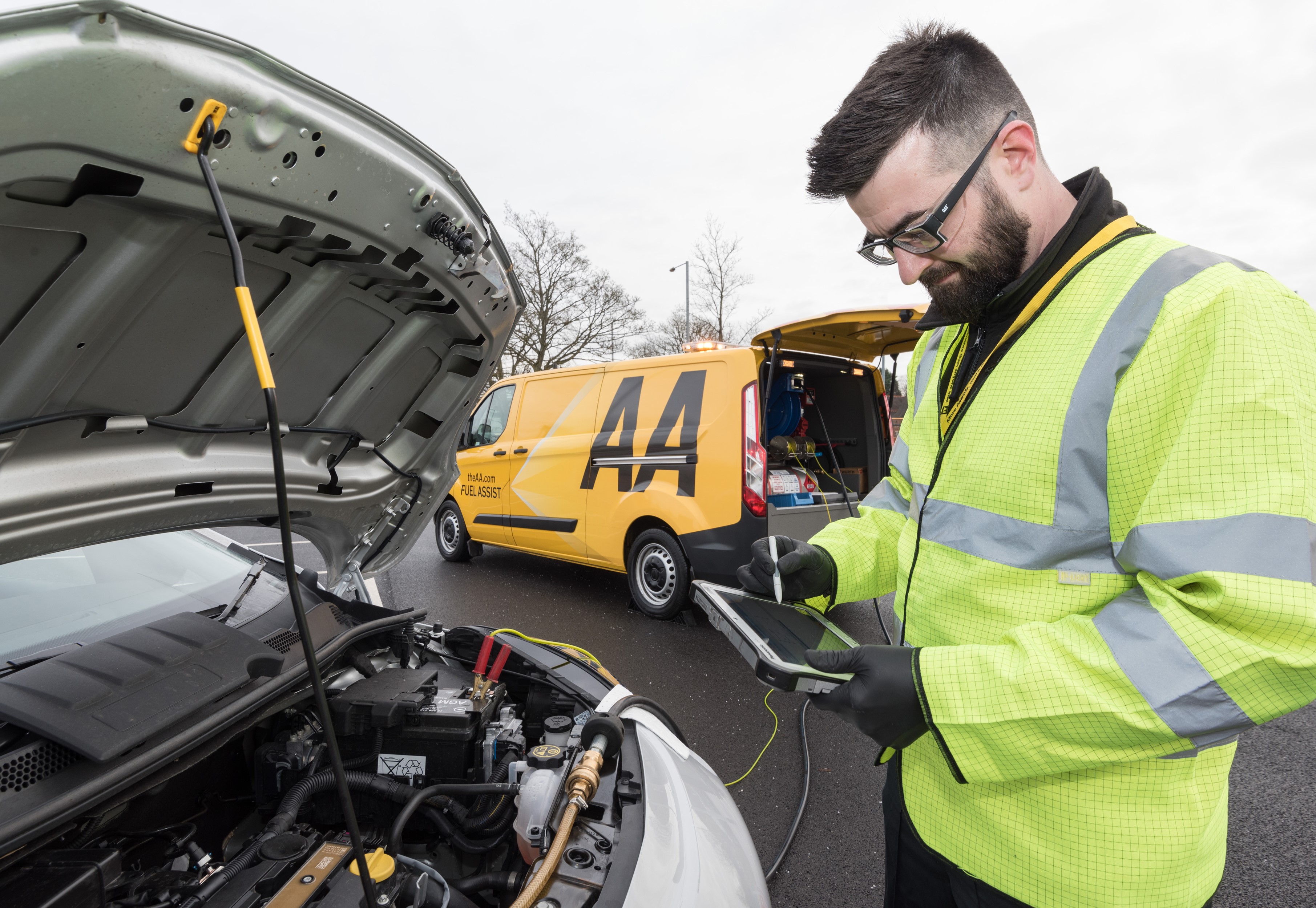Advertisement feature from the AA
A fifth of drivers (18%) * say they would buy an electric vehicle (EV) to maintain cleaner air post-lockdown; meanwhile, further grants are being mooted for EVs, and public sector investment in EV infrastructure continues at pace. Battery-electric vehicles (BEVs) ended 2019 with a record 1.6% of the overall market** and organisations are considering how urban transport can be reshaped to meet demands for improvements in air quality.
 Dean Hedger, EV New Business Development Manager, the AA, comments: “Although zero emission cars and vans make up a relatively small proportion of vehicles on UK roads, pressure from policymakers and consumers is rising. People have enjoyed quieter streets and cleaner air in recent months, putting EV adoption firmly on the agenda. However, for commercial organisations to invest in EV technology, we need to see infrastructure improved; more vehicle choice and availability; and the costs must also stack up.”
Dean Hedger, EV New Business Development Manager, the AA, comments: “Although zero emission cars and vans make up a relatively small proportion of vehicles on UK roads, pressure from policymakers and consumers is rising. People have enjoyed quieter streets and cleaner air in recent months, putting EV adoption firmly on the agenda. However, for commercial organisations to invest in EV technology, we need to see infrastructure improved; more vehicle choice and availability; and the costs must also stack up.”
Referring to research in the 19/20 Operational Fleet Report, by the AA and Rivus Fleet Solutions, Hedger argues further education is required around the Whole Life Cost (WLC) equation; helping fleet managers and business owners to make informed decisions about their investment in new technology over the total course of its working life, not just considering the upfront investment.
In addition, the same research suggests the perception of a lack of trained EV talent in the workplace may have caused some organisations to hold back investment in EVs. More than one in ten fleet managers (and 17% of the largest operators) felt a perceived lack of EV engineers had stopped them investing***.
Hedger explains: “With most AA roadside mechanics now trained to the equivalent of IMI (Institute of the Motor Industry) Level 2, and a third of the AA Prestige Network already EV capable, that perception is unfounded. We are continually investing in upskilling our mechanics out on the road and scaling EV capability within our servicing network to ensure we can effectively support businesses when they shift the balance of their fleets to EV.”
 The Operational Fleet Report suggested many operators believe Service, Maintenance and Repair (SMR) costs will be lower for EVs than their diesel and petrol equivalents, arguing for greater reliability and fewer engine parts which can go wrong. However, AA breakdown data analysis suggests many of the same components require maintenance and repair, whether the vehicle is petrol, diesel or electric. Issues related to tyres, brakes and the 12V battery are among the most prevalent for EVs, while new challenges include HV charging cables and HV batteries.
The Operational Fleet Report suggested many operators believe Service, Maintenance and Repair (SMR) costs will be lower for EVs than their diesel and petrol equivalents, arguing for greater reliability and fewer engine parts which can go wrong. However, AA breakdown data analysis suggests many of the same components require maintenance and repair, whether the vehicle is petrol, diesel or electric. Issues related to tyres, brakes and the 12V battery are among the most prevalent for EVs, while new challenges include HV charging cables and HV batteries.
Hedger concludes: “Ultimately, we need policymakers to offer more incentives to encourage fleets and businesses to take the next step towards zero-emission vehicles. There may well be major changes to the way we travel post-lockdown, with a possible increase in smaller journeys leaving individuals and organisations considering whether electric vehicles may fit their needs.
“To meet that demand, and support economic recovery, we need investment in gigafactories here in the UK to keep our carbon footprint down; more charging points to convince drivers they can always get home; and continued focus on the decarbonisation of urban transport to maintain cleaner air.”
For more information please visit www.theAA.com/business or call 0800 316 0410
*AA Populus survey of 18,129 drivers conducted 12-19 May 2020
** https://www.smmt.co.uk/vehicle-data/evs-and-afvs-registrations/
*** https://www.theaa.com/about-us/newsroom/operational-fleet-insight-report-2019-20













Login to comment
Comments
No comments have been made yet.